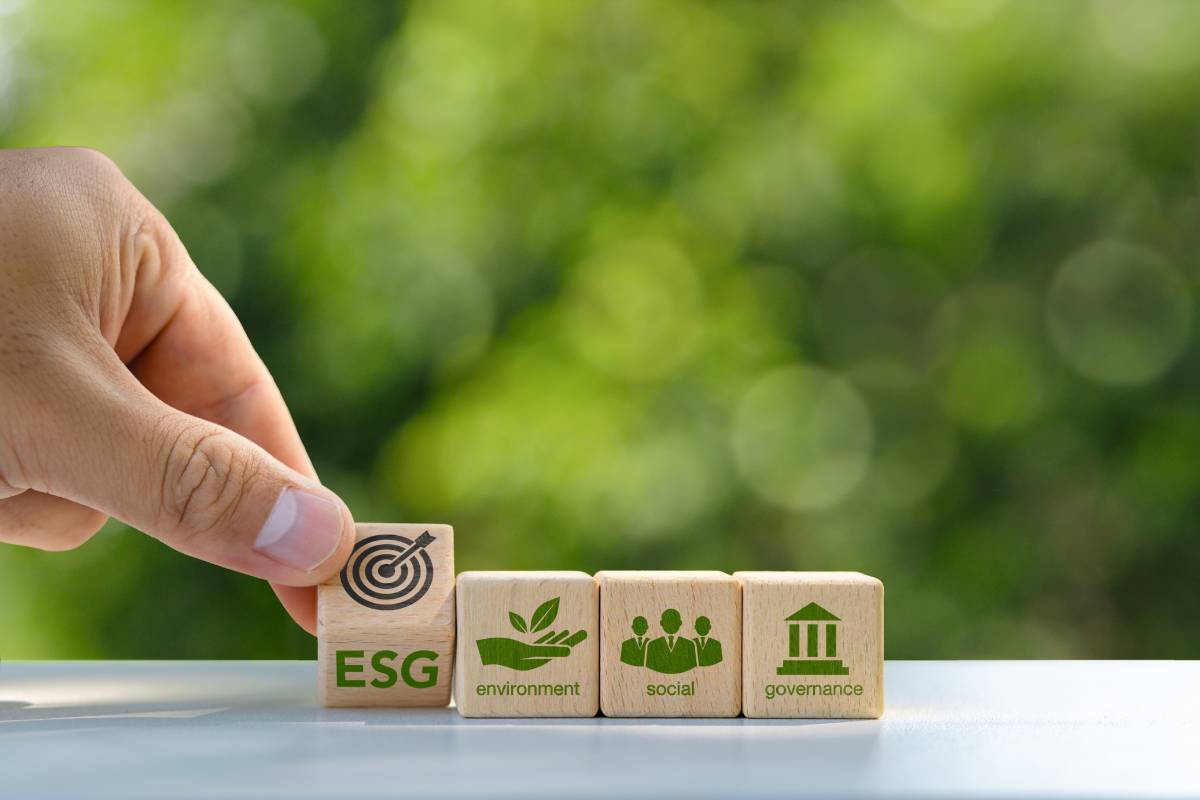The modern, forward-thinking businesses of today are so much more than mere profit-making machines…Consumers are increasingly holding companies accountable for their impact on the planet and our society. As such, it’s no longer enough to simply offer a great product or service; instead, businesses have a moral obligation to operate responsibly and ethically – or risk becoming obsolete.
Enter ESG: a framework for building a sustainable and ethical business that benefits not just the bottom line, but also the environment and the community. This is particularly important in the food industry, where responsible practices are vital for the health of our planet and its people.
Here’s everything you should know…
What is ESG?
ESG stands for Environmental, Social, and Governance. It represents a set of standards for a company’s operations that socially conscious investors use to screen potential investments.
In the modern food industry, ESG encompasses a diverse range of factors, from sustainable sourcing and waste management to fair labour practices and ethical supply chains.
Let’s break down each component:
- Environmental: The ‘E’ focuses on a company’s impact on the environment, including its carbon footprint, waste management practices, water usage, and efforts to protect natural resources.
- Social: The ‘S’ concerns how a company treats its employees, customers, and the communities it operates in. It includes factors like fair wages, safe working conditions, diversity and inclusion, and community engagement.
- Governance: The ‘G’ refers to a company’s leadership, executive pay, audits, internal controls, and shareholder rights. It promotes ethical and transparent business practices, accountability, and responsible decision-making.

Here are some ways ESG is important in the food industry
- Building Trust: Consumers are (rightly so) becoming increasingly demanding about transparency and accountability from food companies. Strong ESG performance builds trust and strengthens your brand reputation.
- Attracting Investment: Investors take ESG factors into serious consideration when making investment decisions. In other words, companies with strong ESG profiles are far more likely to attract investment and secure funding.
- Improving Efficiency: Sustainable practices, such as reducing waste and conserving resources, can lead to significant cost savings and improved operational efficiency.
- Mitigating Risk: Addressing the various environmental and social risks can help companies avoid potentially devastating legal issues, reputational damage, and disruptions to their supply chains.
- Driving Innovation: ESG encourages companies to develop innovative solutions to environmental and social challenges, thus leading to new products, services, and business models.
What part do food waste composters play in ESG?
Food waste composters play a rather special role in the Environmental aspect of ESG. When you efficiently process your food waste, it can help you to:
- Reduce Landfill Waste: Diverting food waste from landfills minimises methane emissions, a potent greenhouse gas that is one of the leading contributors to climate change.
- Create Valuable Resources: Composting transforms food waste into nutrient-rich compost, which can be used to improve soil health and support sustainable agriculture.
- Minimise Environmental Impact: Composting reduces reliance on chemical fertilisers and supports a circular economy, thus minimising the overall environmental footprint of food production.
Examples of being Environmental and caring for our planet
- Reducing food waste: Implementing strategies to minimise the amount of food waste you produce throughout the supply chain, from sourcing to consumption.
- Sourcing sustainably: Procuring ingredients from reputable suppliers who adhere to sustainable agricultural practices, protect biodiversity, and minimise their environmental impact.
- Conserving water and energy: Implementing water-efficient technologies and energy-saving practices throughout operations.
- Minimising packaging waste: Reducing packaging or using eco-friendly, recyclable packaging materials.
- Supporting sustainable agriculture: Promoting and supporting farming practices that protect soil health, conserve water, and reduce reliance on chemical inputs.
Examples of being Social and treating people fairly in the food industry
- Providing fair wages and benefits: Establishing fair compensation and benefits for all employees, including those in the supply chain.
- Promoting safe and healthy working conditions: Creating a safe and healthy work environment for all employees, free from discrimination and harassment.
- Supporting local communities: Investing in and supporting the communities where the business operates, through initiatives like sourcing locally and creating employment opportunities.
- Ensuring ethical sourcing: Making sure that all the ingredients you use are sourced ethically, without exploiting workers or harming communities.
- Promoting diversity and inclusion: Creating a workplace culture that values diversity and provides equal opportunities for everyone.
Examples of Governance and doing the food industry the right way
- Transparent and accountable leadership: Establishing clear lines of accountability and transparent decision-making processes.
- Ethical business practices: Adhering to high ethical standards in all business dealings, including fair competition and responsible marketing.
- Strong corporate governance: Implementing robust corporate governance structures to ensure compliance with any and all necessary regulations and ethical guidelines.
- Protecting shareholder rights: Respecting the rights of shareholders and providing them with clear and accurate information about the company’s performance.
- Regular audits and reporting: Conducting regular audits and reporting on ESG performance for greater accountability and transparency.
Conclusion
ESG is a fundamental framework for building a sustainable and ethical business in the food industry. From minimising your environmental impact, to promoting fair labour practices and ensuring responsible governance, ESG encompasses all aspects of responsible business conduct.
Food waste composters, like those offered by HASS Thailand, are a valuable tool for businesses that are looking to improve their environmental performance and contribute to a more sustainable food system.
Are you ready to enhance your ESG performance and contribute to a more sustainable future for all? Contact HASS today to learn more about our electric food waste composters and how they can help your business achieve its ESG goals.




